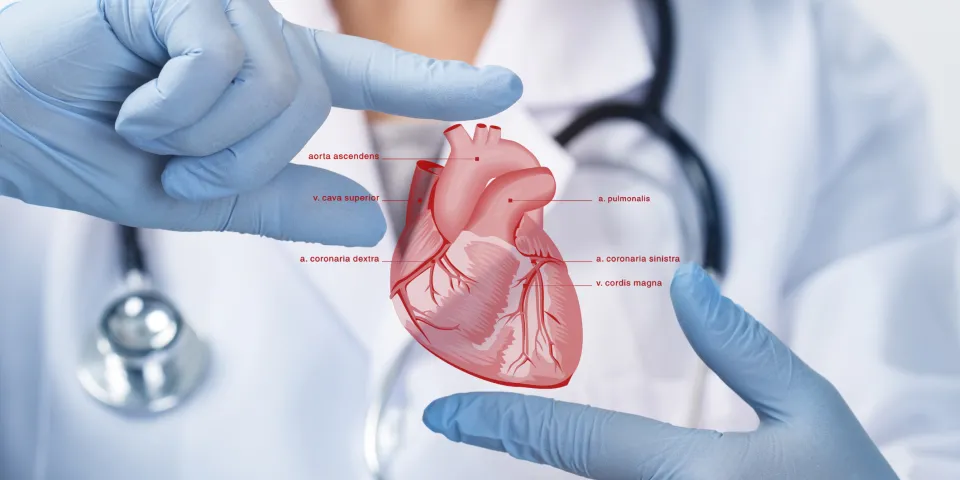Latest
Become a Transplant Nurse and Save Lives
Apr 27, 2023

Medical transplants are incredible procedures that have the power to save multiple lives. Every 10 minutes, a new name is added to the transplant waiting list, a demand that has been historically difficult to combat. An increasing number of nurses are stepping up to support those undergoing a life-changing transplant — are you one of them?
What is a Transplant Nurse?
Transplant nurses play a vital role in the care of patients before, during, and after organ or tissue transplantation, helping to manage complex medical regimens, monitor for complications, and provide emotional support throughout the transplant process. Successful transplant nurses are very detail-oriented and understand the extensive medical history of a patient while possessing strong communication skills and an abundance of empathy.
How Can I Become a Transplant Nurse?
After earning the proper qualifications and certifications to become a transplant nurse, you will work with other members of the transplant team to monitor and report on your patient’s health. In transplant nursing, you are heavily involved in the process from start to finish, caring for patients on both the receiving and the donor side of the transplant. The procedures you would be involved in can be both life-altering and heart-breaking, but simultaneously one of the greatest medical achievements to ever be discovered and an experience you’ll surely take with you for the rest of your career.
A Day in the Life of a Transplant Nurse
No nursing position is easy. As a transplant nurse, you will experience emotions —both positive and negative. To help balance those emotions, you should come prepared each day of work to tackle several responsibilities, including:
- Monitoring your patient’s vitals
- Recording full medical histories of patients and donors
- Ordering lab tests for organ matches
- Communicating the patient’s medical updates with the transplant team
- Being side-by-side with the patient and their family, helping them navigate a life-changing operation
- Helping the donor's family transition through a traumatic and challenging process
- Assist the surgeon during the donor organ or tissue harvest
- Help transport the donor organs to the correct patient in a timely manner
- Preparing patients and loved ones for post-operation life
- Provide post-operative care to patients to monitor vitals and check for complications, like an infection.
- Discharge patients’ post-recovery
Where Would I Work?
As a result of the specific duty requirements of the transplant nurse role, you will most likely be working in a hospital setting. However, in some instances, transplant nurses can work at ambulatory surgical units, licensed outpatient location that only performs surgical procedures, and specialized organ transplant facilities, such as the Mayo Clinic Transplant Center. Depending on your facility and specific duties, you may spend some days traveling to nearby locations to retrieve the harvested donor tissues and organs to bring back to your patient.
The Significant Impact of Transplant Nursing
As a transplant nurse, you can directly impact the life of a patient and their family’s future. By supporting and informing, you are making a lifelong, positive impact on all involved. Through your specialized skills and drive to provide the best care possible, you will play an integral role in saving someone’s life, while honoring the lives of others. Additionally, you can leave a positive impact and memory of a donor’s final days for their loved ones.
As the demand for transplants continues to grow, the need for qualified transplant nurses is increasingly evident. Take this opportunity to support your community in this rewarding and in-demand field, where your work will have a life-changing impact. Learn more about how Herzing University can help you become a successful transplant nurse today.
Learn More About Our Nursing Programs
BLS pay estimates calculate the median annual wage for various occupations. Per the BLS the median wage for an occupation is: "The wage at which half of the workers in the occupation earned more than that amount, and half earned less. Median wage data are from the BLS Occupational Employment and Wage Statistics survey." Bureau of Labor Statistics (BLS), U.S. Department of Labor, Occupational Outlook Handbook 2024. BLS median wage estimates do not represent entry-level wages and/or salaries. Multiple factors, including prior experience, age, geographic market in which you want to work, and degree level and field, will affect career outcomes, including starting salary and earnings as an experienced employee. Herzing neither represents that its graduates will earn the median salaries calculated by BLS for a particular job nor guarantees that graduation from its program will result in a job, promotion, particular wage or salary, or other career growth.
Latest
Recent Blog Posts
Subscribe to our Newsletter
Get the latest news you need to know, from study hacks to interview tips to career advancement. Have it delivered right to your inbox biweekly.








